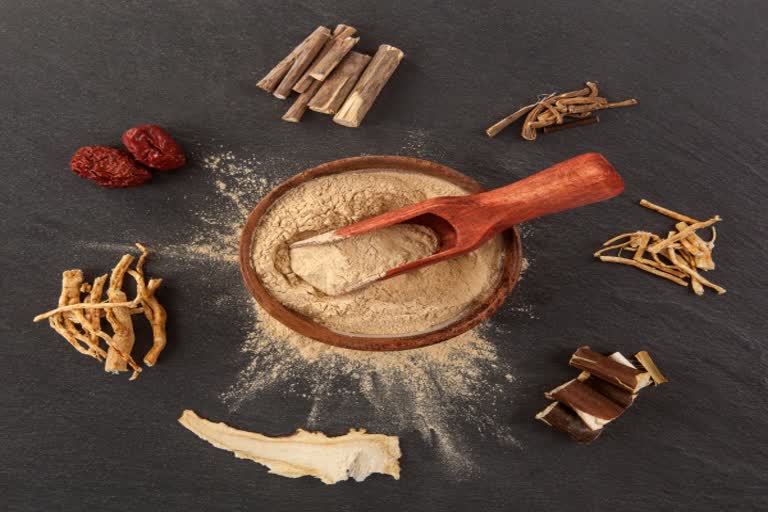Ashwagandha is also known as Winter Cherry or Indian Ginseng. Prominently known for its properties to deal with sleeplessness, stress, to build immunity, and for use as an anabolic drug, Ashwagandha is an herb used widely to deal with various health conditions. Our expert, Dr. Ranganayukulu, Ph.D. in History of Ayurveda explains that Withania Somnifera (Ashwagandha) belongs to the Solanaceae family. It’s a perennial plant. Its root is the best for medicinal uses. Ashwagandha grows throughout India and requires a relatively dry season during its growing period.
Availability
Dr. Ranganayukulu says that Ashwagandha is easily available in the market in various forms, including dried stems and powder. Apart from this, finished products like ghritam (ghee), kvatha (decoction), arista (tonic with little alcohol content), taila (oil), lepa (ointment), churn (powder), lehya (semisolid eatable), and tablet forms are available in the Ayurveda medical shops as well as general medical shops.
Benefits Of Ashwagandha
Here are some of the health benefits of Ashwagandha, as explained by our expert.
- Rejuvenator
1 to 3 grams of Ashwagandha root powder taken with milk or ghee or warm water for 15 days will act as a rejuvenator and it increases weight. - Excessive emaciation
1 part of Ashwagandha with 4 parts of Ghee, cooked and added to 10 parts of milk helps in weight gain. - Insomnia (Sleeplessness)
Take 2 to 4 grams of Ashwagandha powder mixed with sugar and warm milk. It alleviates insomnia and induces good sleep. It also reduces the symptoms of anxiety, neurosis and works like an antidepressant and psychotropic drug. - Bronchial Asthma
The ash (alkali) of Ashwagandha is taken with honey and ghee is effective in bronchial asthma - For Conception
Ghee prepared from Ashwagandha decoction and milk may be consumed in case of infertility. - Wounds
Consume 2 to 4 grams of Ashwagandha powder with jaggery or ghee. It helps in healing the wounds. - Suppression of Urine
Daily consumption of 20 ml decoction of Ashwagandha removes suppression of urine and promotes urination. Urine Suppression could be due to dehydration, problems with kidney, prostate enlargement.
Apart from these, Dr. Ranganayakulu says, “Ashwagandha is anti-bacterial, antipyretic (reduces fever), analgesic (reduces pain), anti-inflammatory, anti-conversant (eases muscle movements), anti-tumour activity, anti oxidant, immunomodulatory. It also helps in toxic conditions”.
Dosage
A general dosage as recommended by our ayurvedic expert is:
- Children: 500 mg
- Adults: 1 gm to 3 gm or Liquid: 10 to 20 ml
Safety Profile
Ashwagandha is not recommended during pregnancy as it can cause early delivery. Also, it should be avoided by breastfeeding or lactating mothers.
Side Benefits
Ashwagandha has certain side benefits as recommended by Dr. Ranganayakulu, which are:
- It gives general strength
- Reduces anxiety, stress, and depression
- Promotes sleep
- Reduces cholesterol
- Helps gain weight
- Promotes memory
- Muscle tone increase
- Prevents cancers, it’s a prophylactic therapy in cancer
Thus, ashwagandha is one of the most effective ayurvedic drugs, but it is always recommended that before starting the medication on your own, consult a physician. Especially for people with hyper or hypo functions of the thyroid gland, talk to your doctor first.



